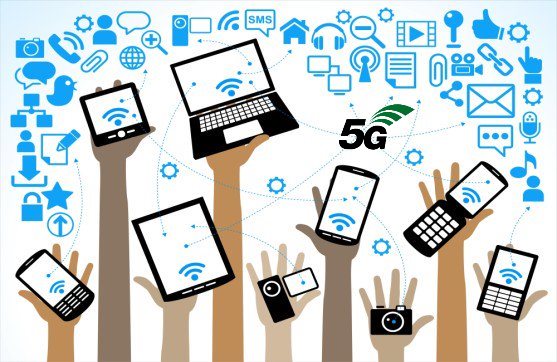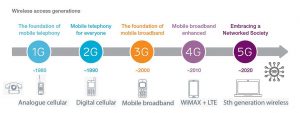5G – A game Changer for Device Management

5G is fast coming to market with roll outs expected across the world in 2019 and 2020. This technology is not only an core enabler for IoT, Robotics, Artificial Intelligence, but also has significant implications as an enabled for Workforce Transformation and Modern Device Management.
As many of you know there is an immense amount of work going on behind the scenes to enable 5G, the next generation of cellular network technology. It is going to trans-formative technology offering three key advantages:
-
- Broadband capabilities multiple times the speeds today. Speeds of 1Gbps to be the norm with 10Gbps possible.
- Massive connectivity scale – Allows the avalanche of devices powered by IoT coming into the market which the current technologies lack
- Low Latency allows much faster respond times – Expected to be less than 5ms.
“5G will enable the era of hyper–connectivity where devices, machines, and humans will be interconnected in a very rich way.”
Liam Quinn, Sr. Vice President, & Sr. Fellow, Dell Technologies Source: Dell Technologist Luminaries Podcast May 2019
South Korea rolled-out 5G to the public in early 2019and it has been a game changer for them already.
5G is the underlying connectivity technology that will enable the growth of Internet of Things (IoT), Augmented Reality (AR), Virtual Reality (VR), Smart Cars , Robotics and so many other technologies soon to be common.
5G and Modern Device Management
As I mentioned in my previous blog post Modern Device Management: More than Just Technology, Modern Device Management relies on cloud-based management and distribution systems. Identity, Authentication, Authorization, OS updates, Application Delivery and Updates, data-sync and much more.
Microsoft built Windows 10 with inherently enabled modern management capabilities on the PC. For organizations enabling and adopting these new capabilities, 5G will further solidify their decision to adopt the new management paradigm and benefit from its advantages. Organizations that still rely on the traditional device management with images, applications, and slow delivery of services will have a significant challenge competing with more agile companies striving in the new world.
The benefits enabling Modern Device Management within the organization, has been well documenting providing significant benefits ranging from cost savings to end-user satisfaction.
| Generation | Launched | Technology | Theoretical Max Speed | Typical Speed | Latency | Speed |
| 1G | 1979 | Analog/Centralized | Voice | 2.4 Kbps | n/a | Voice |
| 2G | 1991 | Digital/Centralized | 1 Mbps | <40 Kbps | 500ms | Voice & Text |
| 3G | 1998 | Digital/ Centralized | 3 Mbps | 384 Kbps | 100ms | Voice, Text & Mobile Data |
| 4G | 2008 | Digital/Centralized | 150 Mbps | 10-12 Mbps | 50ms | Voice, Text & Internet |
| 5G | 2020 | Digital/Distributed | 10 Gbps | 1 Gbps (expected) | 1ms | Voice, Text & Internet |


